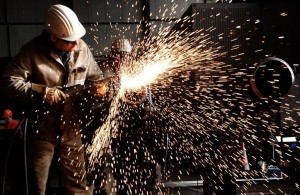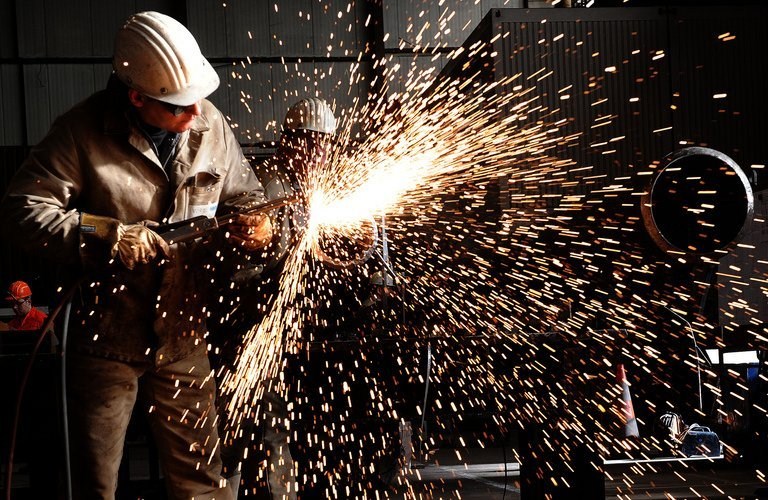
(AFP FILE PHOTO)
Egyptian Iron and Steel Company’s (HADISOLB) workers protested outside the cabinet on Sunday after a deal brokered with top government officials failed to meet their demands.
A deal was announced on Saturday after negotiations were held on Thursday and Friday between representatives of workers and Minister of Social Solidarity Ahmed El-Boraie and Minister of Industry and Foreign Trade Mounir Fakhry Abdel Nour.
The workers were handed a pamphlet summarising the deal; however, Emad Abdel Halim, one of the workers who attended the talks, said the workers were not satisfied with the pamphlet and that they want to see a copy of the official signed deal.
Amr Abdel-Rashid, one of the workers not satisfied with the deal, said the workers who took part in the negotiations do not represent the strikers.
The workers had been striking for 19 days for several demands, including that they be paid 16 months’ worth of profit shares. Abdel Halim said the way the issue was addressed during negotiations was unsatisfactory; it was agreed that 10 months worth of profit would be paid soon, but the remaining amount would be paid within 6 months.
But the workers say the government will have changed within six months. Bassem Fawzy, another worker who is against the deal, said the workers want to be paid their entire profit share within a month.
Abdel Rashid is one of about 10 workers who were moved from the factory to the quarries and other remote areas after taking part in a protest in July, he said.
The striking workers’ demands include reinstating these workers into the factory, improving working standards, developing the company and investigating allegations of corruption.
The workers’ demands also include that the factory be supplied with coke fuel. The Egyptian Initiative for Personal Rights (EIPR) said the amount of coke supplied to the factory began declining since October, when it was 800 tonnes a day. In November, supply fell to 400 tonnes a day, which meant that the factory was operating under capacity, utilising only one of its four ovens.
Workers are also demanding the removal of top company and union officials.
There have been clear divisions between workers since the strike began and differing views as to who truly represents them. Chairman of the General Union for Engineering Industries Khaled El-Feki said: “[The] people who agreed on the deal do not represent the workers,” adding that a deal should come through the union.
The company was unavailable for comment.
The company was established in 1954 and employs around 14,000 workers but is currently operating at a loss. A statement by the cabinet said the company has incurred EGP 864m worth of losses so far this year and EGP 405m last year.
Approximately 5,000 workers welded shut the factory gates in Helwan on 2 December.
Last week, EIPR urged the government to quickly respond to the demands of the striking workers.




